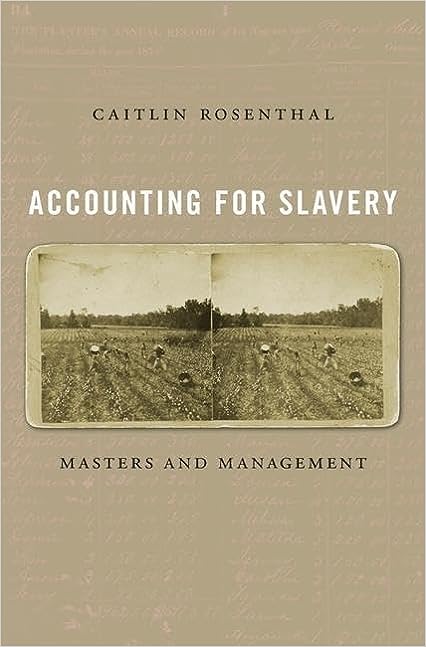Book Details

Accounting for Slavery : Masters and Management
The traditional story of modern management focuses on the factories of England and New England, but Rosenthal demonstrates that investors in West Indian and Southern plantations used complex accounting practices, sometimes before their Northern counterparts. For example, some planters depreciated their human capital decades before the practice was a widely used accounting technique. Contrary to narratives that depict slavery as a barrier to innovation, Accounting for Slavery explains how elite planters turned their power over enslaved people into a productivity advantage. The brutality of slavery was readily compatible with the development of new quantitative techniques for workforce organization.
By showing the many ways that business innovation can be a byproduct of bondage, Rosenthal further erodes the false boundary between capitalism and slavery and illuminates deep parallels between the outlooks of eighteenth- and nineteenth-century slaveholders and the ethical dilemmas facing twenty-first-century businesses.
Preface
Introduction
1. Hierarchies of Life and Death
2. Forms of Labor
3. Slavery’s Scientific Management
4. Human Capital
5. Managing Freedom
Conclusion: Histories of Business and Slavery
Postscript: Forward to Scientific Management
Notes
Acknowledgments
Index
Popular Picks on the Month















